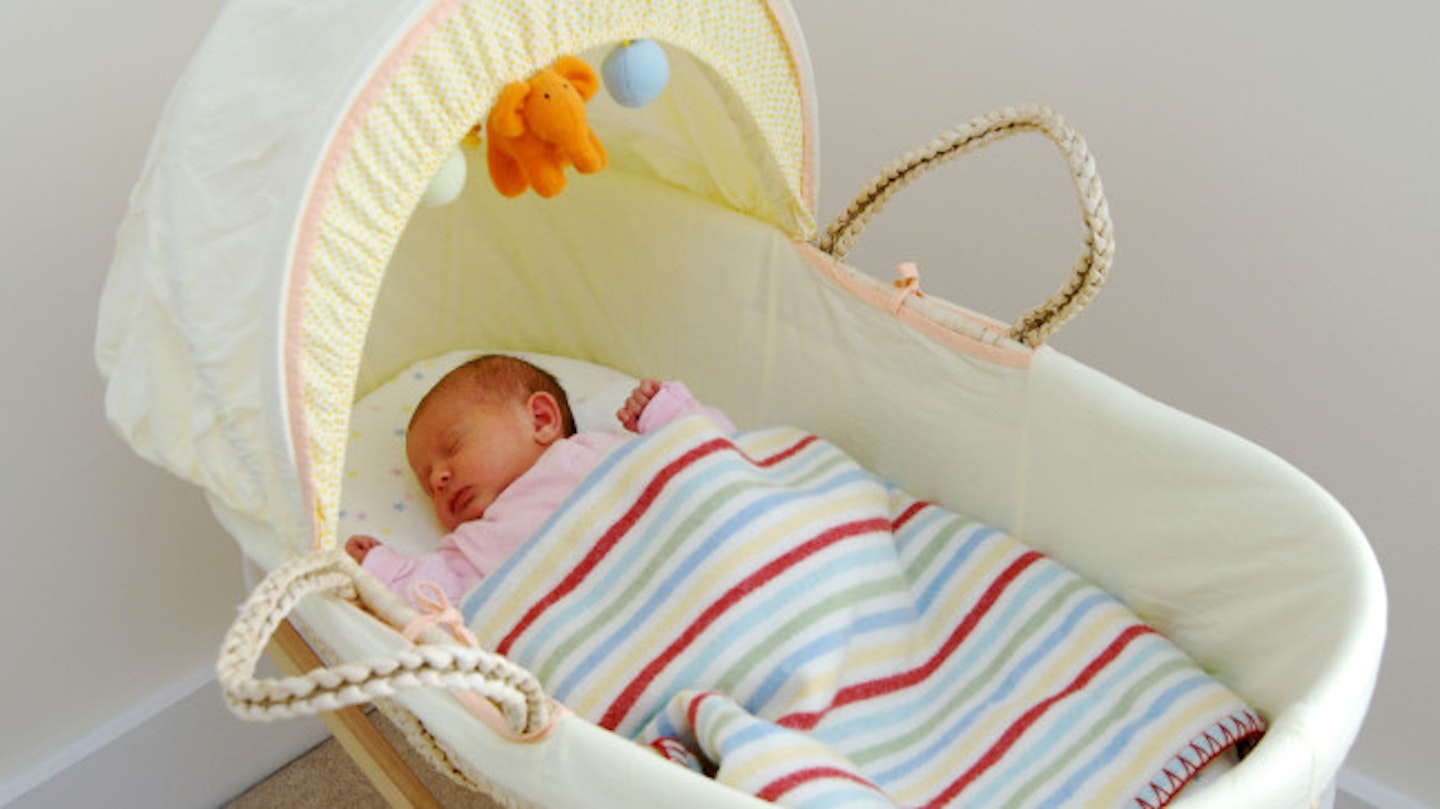The National Institute for Health and Care Excellence (NICE) have said that families should learn about safe sleeping habits for babies to reduce the risk of sudden infant death syndrome (SIDS).
"Falling asleep with a baby, whether that’s in a bed or on a sofa or chair, is risky"
According to the NHS, at least 300 babies die suddenly and unexpectedly every year every year in the United Kingdom, with most deaths happening during the first six months of a baby's life.
READ: COUPLE SHARE ADVICE ON HOW TO SUPPORT A FAMILY WHEN A BABY DIES
While the statistics sound alarming, SIDS is rare and the risk of your baby dying from it is low; however NICE have said that babies born prematurely or with a low birth weight are at an increased risk of cot death if they sleep with their parents.
NICE's clinical practise director professor Mark Baker explained: "Falling asleep with a baby, whether that’s in a bed or on a sofa or chair, is risky."
![Babies should sleep on their backs, say The Lullaby Trust [stock image]](https://images.bauerhosting.com/legacy/lifestyle-legacy/bb/caf6a/d8011/4ef7c/9bf14/18170/9aa4e/AGXGYM_466x466.jpg?auto=format&w=1440&q=80)
READ: INSPIRATIONAL QUOTES ON DEALING WITH GRIEF
"It’s imperative that all parents and carers know about the association between sudden infant death syndrome and falling asleep with a child under the age of one.
"This is especially important if parents drink alcohol, take drugs or expose their baby to tobacco smoke."
He added to The Mail Online: "There is no universal agreement on the causes of sudden infant death syndrome.
"We know there is a link between SIDS and falling asleep with a baby in a bed or on a sofa or chair, but studies into why this happens can often give conflicting results. And other factors are likely to play a part in increasing the risk to the infant."
READ: 50 INSPIRATIONAL LIFE LESSONS TO SHARE WITH THE IMPORTANT PEOPLE IN YOUR LIFE
"We recognise that some parents may choose to share a bed with their baby because it could make breastfeeding easier, or for cultural reasons. Or they may be forced to co-sleep because they may not have the space or money for a cot.
"This is why it’s so important for parents to understand what the risks are. The recommendations we are developing aim to help healthcare professionals inform parents and carers of the likely risks associated with co-sleeping, according to the best available evidence."
Under the new guidance, advice over co-sleeping applies to parents of all babies under the age of one.

Jenny Ward, head of support and development at the Lullaby Trust, which campaigns for greater awareness of SIDS, said that the new guidance was welcome.
“It’s universally agreed that the safest place [for a baby to sleep] is in a cot in your room for the first six months. Some parents will choose to bed-share beyond that,” she said to The Independent.
Parents should also put their babies to sleep on their backs, not on their fronts, she added.
_646x363.jpg?ar=16%3A9&fit=crop&crop=top&auto=format&w=1440&q=80)